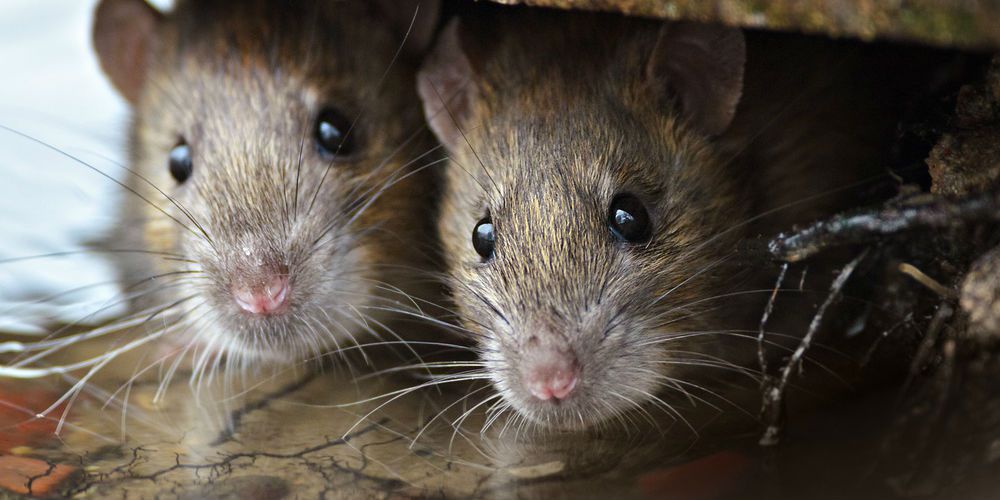You’ve probably heard some exaggerated stories about certain tiny animals. You can find mice in different settings, including buildings and forests. It can be challenging to decide whether to flee as far away as you can from the intruders or to get closer so you can catch them. Whichever option you pick, the first step in dealing with rodents is not to become anxious. Although mice are more infamous than you might imagine, understanding the difference between fiction and reality will help you better comprehend your circumstance. So are mice fond of cheese? Do they solely live in unclean homes? Is having mice in your home normal? By reading our article, you can learn what is true and false about these whiskered rodents. We will reveal the most common myths about house mice so that you know who you are dealing with in case of an infestation.
Mice love cheese
Do mice eat cheese? Sure they do! Mice are foragers and eat anything they can get their paws on. In truth, they will even eat other mice if food is severely limited. The reality is that they prefer a range of diets, including carbohydrates, fats, and proteins, just like humans. So even if they eat cheese, it’s not their preferred dish. Also, if you leave food out in the kitchen or fail to clean up spills and crumbs, you increase the likelihood of mice drawing near the kitchen. Therefore, try avoiding leaving food out in general, not only cheese.
Cats and dogs will keep mice away from your home
Even though some cats and dogs may chase rodents or succeed in catching and killing them, they are ineffective at controlling rodent populations. Rats and mice can evade your pets by hiding in building cracks and using pathways that are inaccessible to your pets. Furthermore, unattended pet food typically attracts more rodents than your pets are able to chase out.
If you don’t see mice, you are not infested
Although they are primarily nocturnal, mice are more active when they feel safe, and there is less risk. Mice typically only seek food and water in a limited area and move independently. Therefore, if you don’t see mice, it doesn’t mean you are pest free. In truth, you should be looking for other signs of infestation, such as the following:
- Droppings – They are the first indicator of an infestation. Mouse droppings are about the size of a rice grain, brown, and gathered in piles.
- Dry food is missing – Mice love eating tiny foods like rice, seeds, grains, and nuts. So, if you discover food missing from open packs of such products, they may be at fault.
- Chewed cables – Check your wires and electrics for any bite marks. If you notice any, it’s very possible that rodents caused them. Moreover, replace those wires as soon as possible as they can be a fire hazard.
- Scratching sounds – Mice can’t stand still for very long. Therefore, If you have an infestation, you can expect to hear them moving about, especially while you try to fall asleep.
- Bad odors – If you feel a scent that resembles ammonia through your house, it’s most probably from rats or mice.
It’s possible to have only one mouse in your home
If you find one mouse in your home, there’s an almost 100% chance that there are more. Mice breed all year long, multiply rapidly, and slowly establish nests in the cracks and holes of your living space. Therefore, getting rid of one mouse doesn’t mean you got rid of all your problems. In truth, if you are moving out and want to sell your home but you found a mouse, it is better to call pest control to take care of the problem. As you rely on experts in the area to help you move within LA, for example, you should also count on experts to help you get rid of your pest problem.
Mice aren’t harmful
One of the most common myths about house mice is that they aren’t all that bad. Rats, for example, are rodents with a considerably worse reputation. Even while house mice are much smaller than rats, they can still be a significant threat. Several illnesses, including the potentially fatal Hantavirus, are still carried by them. Moreover, they may damage electronics or furniture with their constant chewing. As mentioned above, they might even start house fires if they nibble on cables.
At the same time, mice are also filthy and cunning creatures. They can contaminate food sources and leave feces and urine all over the house. If they feel threatened, they may even bite dogs and cats to irritate them.
House mice are a sign of poor hygiene
Even the cleanest homes and workplaces can have a mice problem since sanitary or unsanitary environments won’t repel them. They’ll settle there if they can get inside your house and there is food or material for a nest. Since most of these rodents seek a food source, places with a plentiful supply of food will attract them. Mice will search for food in gardens, fruit trees, or bird feeders. They also roam areas like mulch piles, dense landscaping, cluttered garages, and easily accessible annex buildings in search of a place to nest.
It is easy to get rid of mice by yourself
The final and possibly most harmful among the most common myths about house mice is that you can take care of a mouse infestation on your own. You could believe all you need to get rid of mice is a few mouse traps and some cheese. However, these strategies frequently need to be improved in practice. And although there are DIY pest control methods and supplies available, it’s simple to skip steps and not follow instructions precisely, which could result in a persistent pest problem. Mice are more intelligent than you realize, and they multiply far too rapidly to be eliminated one at a time.
In conclusion
So now that we have busted some of the most common myths about house mice and learned some facts, it’s time to take action. If you have rodent infestations in your home, contact pest control experts. With their help, your rodent problems will become a memory in no time.







